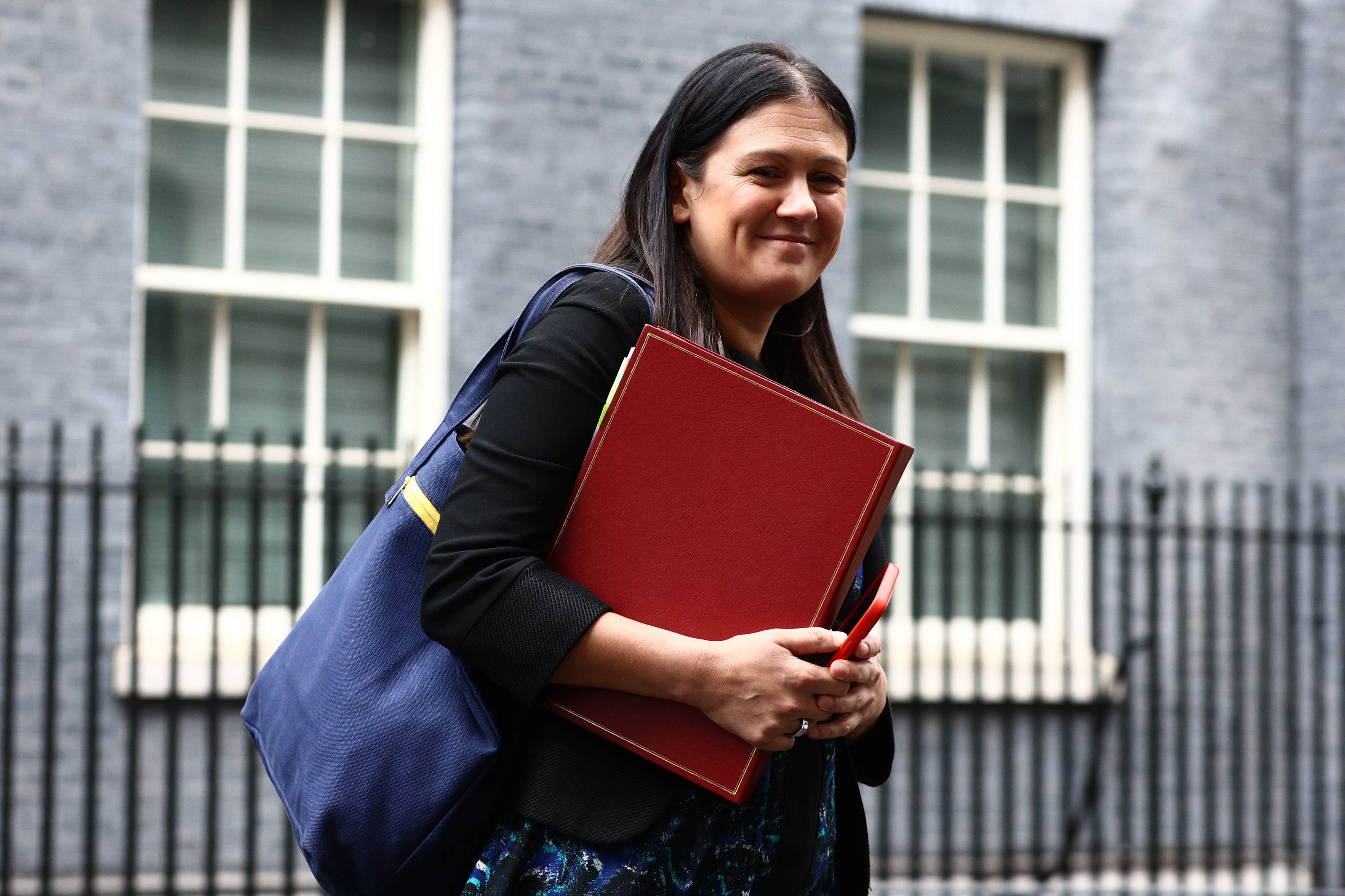Nandy says Government shares public’s priorities after clothing donations row
Culture Secretary Lisa Nandy said that ministers ‘don’t want people to believe that we are living very different lives from them’.

Your support helps us to tell the story
From reproductive rights to climate change to Big Tech, The Independent is on the ground when the story is developing. Whether it's investigating the financials of Elon Musk's pro-Trump PAC or producing our latest documentary, 'The A Word', which shines a light on the American women fighting for reproductive rights, we know how important it is to parse out the facts from the messaging.
At such a critical moment in US history, we need reporters on the ground. Your donation allows us to keep sending journalists to speak to both sides of the story.
The Independent is trusted by Americans across the entire political spectrum. And unlike many other quality news outlets, we choose not to lock Americans out of our reporting and analysis with paywalls. We believe quality journalism should be available to everyone, paid for by those who can afford it.
Your support makes all the difference.Ministers have sought to end the perception they are leading “very different lives” to the public ahead of Labour’s party conference amid efforts to draw a line under a row about clothing donations to high-profile Government figures.
Culture Secretary Lisa Nandy said it was important to demonstrate the Government’s priorities are “the country’s priorities” after it emerged on the eve of Labour’s annual gathering that clothing donations would no longer be accepted by the Prime Minister and his top brass.
Neither Sir Keir Starmer, Deputy Prime Minister Angela Rayner nor Chancellor Rachel Reeves will accept such donations in the future.
Sir Keir and his wife Lady Victoria Starmer had faced scrutiny over the acceptance of gifts, including clothing, from prominent Labour donor and peer Lord Alli.
The Financial Times newspaper meanwhile reported that donations “in kind” listed in the publicly available registers of interest for both Ms Reeves and Ms Rayner had also been for clothing.
The row has drawn criticism from Labour’s political opponents who have sought to contrast the lavish gifts with the Government’s decision to limit the winter fuel payment for all but the poorest pensioners.
Asked about the reasoning behind the decision, Culture Secretary Ms Nandy told BBC Breakfast: “For exactly the reason that you just said, that people are really struggling in this country, and we don’t want people to believe that we are living very different lives from them.
“Most people who go into politics, of all political parties, are ordinary people who want to make people’s lives better.
“It is important to us that people know that that is what we are as a Government and that we have their priorities absolutely up front and centre of ours.
“The country’s priorities are our priorities.”
Ms Nandy said the most important thing the Government had done since coming to office was being “open and transparent about what we are doing”, and maintained Sir Keir had followed the rules on donations.
She earlier told Sky News the Government did not “want the news and the commentary to be dominated by conversations about clothes when we have a really positive agenda for this country”.
The only judgment I would make is, if they (MPs) are breaking the rules and they are trying to hide what they are doing, that is when problems arise
The senior minister said she had not received any clothing gifts from donors, but added: “I don’t make any judgment about what other Members of Parliament do.
“The only judgment I would make is, if they are breaking the rules and they are trying to hide what they are doing, that is when problems arise.”
Sir Keir has accepted around £39,000 from Lord Alli since December 2019.
The FT’s reporting claimed that a donation “in kind” Ms Rayner received from Lord Alli was for clothing, while a donor called Juliet Rosenfeld provided funding for the Chancellor’s wardrobe in four instalments.
Labour Party figures have begun gathering in Liverpool for their first annual conference since winning the general election.
The event is expected to provide the Government with a chance to reset the narrative, as it draws attention to its plans to build more housing, revive the health service and address other areas of public services.
Internal differences over the UK’s future approach to the Middle East conflict, and the winter fuel payment cut, could however prove sticking points for Labour.